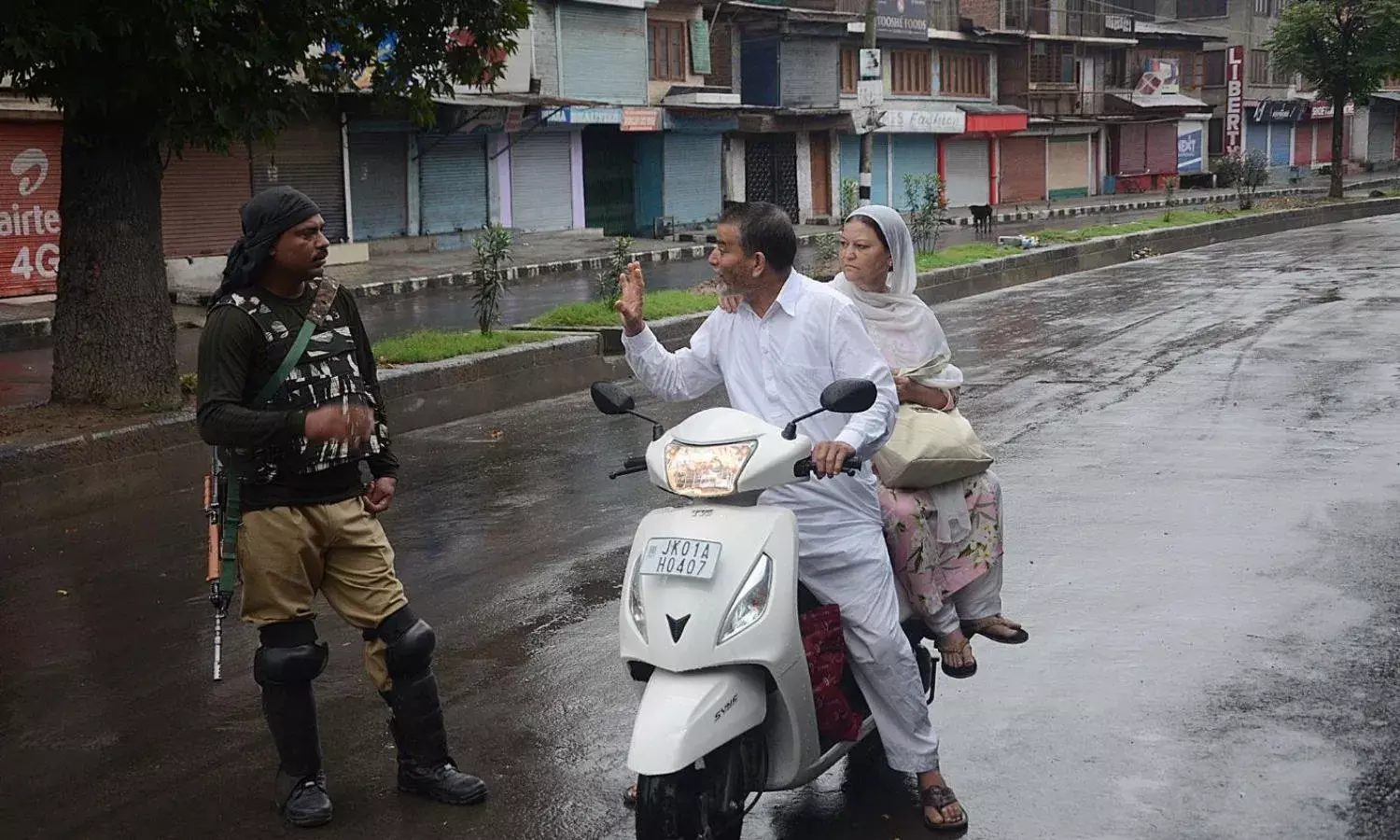Why the Mental Health of Kashmiris is a Matter of Grave Concern
For the last 28 days there has been no communication out of Kashmir

Developments in Kashmir since the complete clampdown for over three weeks will likely compound the psychological agony of the people in the Valley who have been living amid militancy and militarisation for decades.
With a large section of the medical fraternity standing radicalised on political lines, the question now is whether, once the clampdown is lifted, the government will come forward for the large scale interventions required.
Senior psychiatrist and author Dr Anirudh Kala points out, “Medical documentation has in the past pointed to the high incidence of Post Traumatic Stress Disorder among ordinary Kashmiris. The latest developments, where the people are undergoing an out-of-ordinary experience, with no communication and a complete shutdown, will further compound this.”
Kala has rich experience dealing with the mental health problems of Punjabis in the era of militancy and afterwards, where he studied the impact of such situations on the common people as well as former militants.
“People in such circumstances as are prevailing right now in Kashmir undergo out-of-ordinary experiences, like they do whenever there is a massive natural disaster like an earthquake or a tsunami. They show hyper vigilance and their eyes go on scanning the landscape. They have flashes of memory and show tendencies of being irritable and anxious,” Kala told The Citizen.
Here one recalls a recent story that went viral, about some Kashmiri students who visited Mumbai some years back and were unable to fathom why there was no curfew at night.
Kala’s account is substantiated by a study conducted by the international organisation Medecins Sans Frontières or Doctors Without Borders. Carried out in the Kashmir Valley in 2016 in collaboration with Kashmir University’s Department of Psychology and the Institute of Mental Health and Neuroscience, the study found that nearly 1.8 million adults or 45% of the population showed symptoms of significant mental distress.
The survey covered 5,428 households in 399 villages - 41% of respondents exhibited symptoms of probable depression, 26% showed symptoms of probable anxiety and 19% showed symptoms of probable PTSD.
Kala points out that for the last 28 days there has been no communication out of Kashmir and hence there is no way to confirm to what extent the incidence of mental illnesses has increased. “In such situations there are delays in people reaching health facilities. Then there is a shortage of medicines as chemists are not aware till when there would be a shut down.”
According to reports the central government recently arrested Dr Omar Salim, a urologist at the Government Medical College in Srinagar, soon after he warned the media that critical life-saving medicines were running out and given the curfew and communications blackout new orders could not be placed.
According to Kala, in such situations children are the worst affected since their movement outside the home gets restricted and they are unable to gauge what is happening.
Adding to the problem is the fact that, “For a population of 80 lakh there are just a dozen psychiatrists. The majority of them would be traumatised themselves. A large number of camps will need to organised for screening and treatment. But all this has to be planned. Will the government do it?” Kala said.
Recently the prestigious British medical journal The Lancet published an editorial on Kashmiris’ mental health difficulties while questioning India’s recent moves.
The editorial titled ‘Fear and Uncertainty Around Kashmir’s Future’ observed how, “Despite decades of instability, developmental indicators suggest that Kashmir is doing well compared with the rest of India… However, the protracted exposure to violence has led to a formidable mental health crisis. A Médecins Sans Frontières study in two rural districts affected by conflict stated that nearly half of Kashmiris rarely felt safe and of those who had lost a family member to violence; one in five had witnessed the death firsthand.”
It further said, “Prime Minister Narendra Modi vows that his decision to revoke autonomy will bring prosperity to Kashmir. But first, the people of Kashmir need healing from the deep wounds of this decades-old conflict, not subjugation to further violence and alienation.”
This was enough for a section of embedded Indian medical professionals to take on the journal, branding the editorial opinion as “interference” in India’s internal matters.
The Indian Psychiatric Society was most vocal: it wrote a letter to The Lancet authorities signed by its president Dr Mrugesh Vaishnav and general secretary Dr Vinay Kumar to say, “It is painful to see that the reputed medical journal The Lancet has committed breach of propriety in commenting on this political issue. It is amounting to interference into an internal matter of Union of India. The Lancet has no locus standi on the issue of Kashmir.”
It went on to say that the “Indian Psychiatric Society condemns this unsolicited intrusion into the affairs of the Sovereign Republic of India. Generations of Indians especially the doctors and medical students will carry the unpleasant memory of this act of commission”.
Kala, who is based in Ludhiana and resigned from the Indian Psychiatric Society some years ago, rebutted its stand in an open letter addressed to Vaishnav, asking:
“How can commenting about something be interference or intrusion into another country’s affairs? Also, if that is interference, why is the IPS president commenting on Pakistan's healthcare? And if students and doctors are going to carry unpleasant memories of an editorial, what must the Kashmiris be carrying?”
Cover Photo: BASIT ZARGAR for TheCitizen.in



